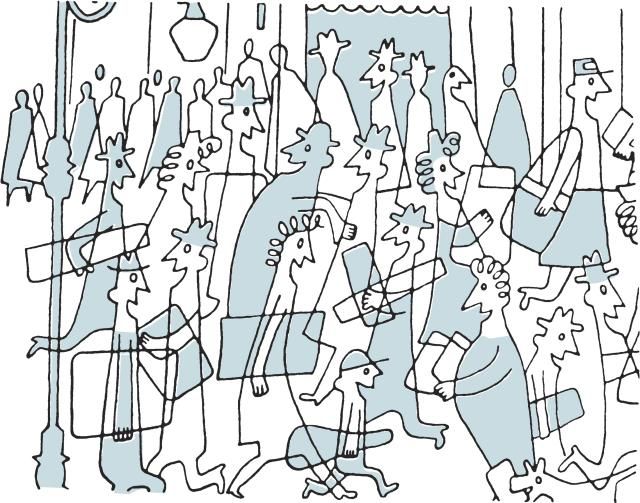Secondly, Marx's thesis of the growing role of the masses in history is inconsistent with the current state of affairs. Today, the tendency to reduce the role of masses in the public process of production is noticeable. Today, more and more machines are displacing man from the manufacturing sphere, the role of live labor diminishes at the expense of the role of the so- determined in the technique of dead labor. Secondly, in terms of structure, the role of intellectual, scientific and technical development in the process of development is increasing.

[image source](https://www.pinterest.com/pin/415316396865886869/?lp=true)
Instead of the so-called people with blue collar, who have determined the pace of development with physical force, people with white collar. In general, the development in perspective will increasingly depend on the intellect of man, not on his healthy arms. Besides, this new type of "manufacturer" - the scientifically technical elite, is so well paid today that it has no idea of making any kind of revolution, like the Marx. In this sense, the elitist concept, as read, stands closer to the trends of today's development. The role of the masses can only be of relevance in the context of such issues as ecology, peace, peoples' relations, etc. Since intellect and spirit is the driving force of society, it must be given the opportunity to develop. How will this happen? When we release it, imperative to ensure the existential minimum of every person so called. solving the problem of 'body care'. Only then can the intellect and the spirit continue to develop.
THE QUESTION OF THE LOGIC OF HISTORY.
The ideological and deterministic understanding of the issue. This is one of the most discussed in the philosophy of history, and this is not accidental since it relates to the order and the relationship of the next events with phenomena. However, in the whole range of perceptions on this subject, two teachings / views /, namely the case / chance / and the doctrine of necessity, can be highlighted. The first expresses the indexation orientation in the FI, the second determiner, manifested in two varieties, namely as a unambiguous and common determinism. Indeterminism as a direction in the philosophical and philosophical thought is the result of the formal logical style of thinking, which is the quest for the answer to each question on the plane of the "YES" or "NO" discourse, denying the necessity, logic in history he absolutised the chance, the singularity, the uniqueness. For him, the historical development is a process that is entirely subordinate to the case. There is no common and sustainable relationship.
 hiveblocks
hiveblocks